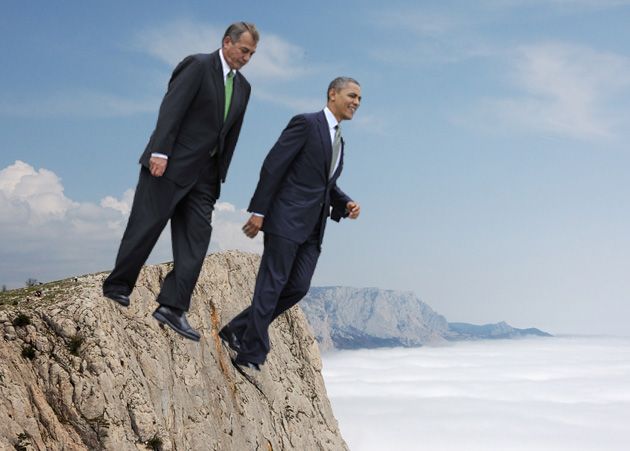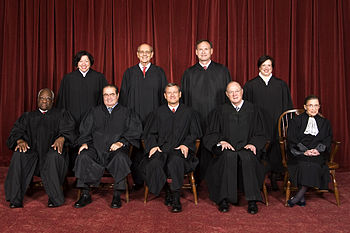The purpose of journalism is to pursue the truth. Seeking the truth means uncovering corruption when necessary. In the context of the Middle East, most journalists and mainstream media have failed to hold Israel, the United States and their officials accountable.
Since Israel’s existence, the West continues to frame the land dispute as a never-ending conflict between Jews and Muslims or Arabs and Jews. A forever war. This framing completely removes the context as to why Palestinians and peoples of neighboring Arab states have a tumultuous relationship with Israel’s presence in the Levant.
Oct. 7, 2023, marked a significant shift in how Americans view the “forever war” in the Middle East. While not all Americans share this perspective, many, like myself, have begun questioning the dominant narrative peddled by popular media.
Advocates for Palestinian human rights have expressed their outrage at the language news agencies use when reporting on the atrocities happening in Gaza. Using terms such as “Israel-Hamas war” or “Israel-Palestine conflict” is reductive and does not accurately describe what has and continues to take place in the region.
The media’s framing of Israel and Palestine often centers on a “both sides” narrative — one that equates the actions of a heavily armed and technologically advanced military with the resistance of a stateless, marginalized population. This simplification erases the power imbalances at play and paints the situation as an endless clash between two equal parties when, in reality, Israel’s military superiority is unquestionable.
Palestinians in Gaza, the West Bank and East Jerusalem face an ongoing siege, systematic denial of fundamental rights, forced displacement and daily violence of settlement expansion. The human rights violations are not random acts of violence, as the U.S. and Israel would like the public to believe, but the result of state-sanctioned policies that violate international law.
In contrast, Israel’s critics who call attention to these violations are often silenced or labeled as antisemitic to discredit their claims. This tactic is not only dangerous but also shields Israel from accountability and perpetuates the cycle of violence. Framing any critique of Israeli policies as an attack on the Jewish community creates an environment in which speaking out against state violence is seen as controversial or even hateful rather than an act of solidarity with those suffering under occupation.
The issue is not just about one-sided reporting — it’s about a refusal to recognize the lived experiences of millions of Palestinians. It’s about failing to show the complete picture of what Palestinians endure: from the destruction of their homes and communities to the desecration of their holy sites to the brutal restrictions on movement and access to healthcare, food and water. The narrative that Palestinians are caught in a “forever war” obscures their humanity in the media.
It is rare for mainstream Western media outlets to inform their audience about the 1948 Nakba, also known as “the catastrophe.” Israeli militia groups killed approximately 13,000 Palestinians and expelled 750,000 from their homes during the attack. The Zionist forces destroyed a total of 530 Palestinian villages.
Neglecting to inform the public about horrific events like the Nakba is just one example of the mainstream media failing to perform its due diligence in providing the whole context of the Israel-Palestine “conflict.”
When reporting on the news in the United States, journalists have to adhere to guidelines called Associated Press style, or AP style for short. Most U.S. news media outlets reference AP for grammar and punctuation and guidelines on reporting principles. The guide also claims to provide instruction on specific terms to remain impartial.
When covering news on Israel or Palestine, AP prohibits using the term “genocide” because it is deemed to be too “polarizing.” However, if a country is committing genocide, it should be reported as such.
Genocide is defined as the intent to destroy, in part or whole, an ethnic, racial, religious or national group. Raz Segal, a professor of Holocaust and genocide studies at Stockton University, was one of the first scholars to say Israel’s aggression against Gaza is a “textbook case” of genocide.
There’s overwhelming evidence that Israel is targeting civilians in Gaza and the West Bank. The United Nations has published reports stating that “Israel has committed crimes against humanity, forced starvation, extermination, murder and inhumane treatment of Palestinians.” If international organizations such as the UN can describe Israel’s actions as genocide, then it begs the question of whether the standards set by AP are prohibiting journalists from reporting the truth.
Headlines from CNN, MSN and other legacy news outlets are reductive because the guidelines portray the West and their allies more favorably. The New York Times uses its own house style instead of AP style, yet it still refuses to describe Israel’s actions against Palestinians as genocide. The New York Times has been notorious for using language that dehumanizes Palestinians. Reputable media outlets such as The Intercept, Electronic Intifada, Democracy Now, Al Jazeera, and others have been vocal about the Times’ inadequate coverage of Palestinian issues.
In April, the Intercept obtained a memo from the Times instructing journalists to avoid the terms genocide, ethnic cleansing and occupied territory. This careful avoidance of terminology that accurately describes the scale of Israel’s actions highlights a broader issue in media coverage of the ongoing Israeli occupation of Palestine.
By refusing to use words like “genocide” or “ethnic cleansing,” mainstream outlets like The New York Times and CNN obscure the reality on the ground and mislead their audiences about the nature of the violence carried out against civilians. Words matter, especially in journalism, and when such critical language is avoided, it perpetuates a false equivalency between the oppressor and the oppressed.
Journalists who are genuinely committed to presenting the truth must confront this distortion. Allowing corporate media giants to continue delivering a false narrative is unethical. The truth must be told no matter how uncomfortable it makes those in power; Journalists should not continue to ignore the suffering of the Palestinian people simply because it might damage the reputation of a U.S. ally.
The Israeli government’s refusal to acknowledge its responsibility in this “conflict” — paired with the complicity of the U.S., which provides billions of dollars in military aid to Israel each year — has created an environment in which accountability is virtually nonexistent. International bodies, including the United Nations, have called for investigations into Israeli war crimes and violations of international law. Despite the mountain of evidence, Israel’s actions are met with calls for “dialogue” from Western leaders rather than concrete steps toward justice.
For journalists, the duty is clear: to amplify the voices of those who have been silenced for decades, to report on the nature of Israel’s occupation accurately and to hold the Israeli government accountable for its actions. This requires breaking free from the tired tropes of “balance” that have historically been used to excuse the oppression of Palestinians. It’s not about “both sides.” It’s about recognizing the power imbalance, understanding the historical context and giving Palestinians sovereignty.
For too long, the mainstream media has been complicit in marginalizing Palestinian voices. But as more people become aware of the realities on the ground — thanks to grassroots media organizations, independent journalists in Gaza, and social media activism — the pressure on mainstream news outlets to confront the truth is growing. Journalism is not about preserving the status quo or protecting the interests of powerful states. It is about revealing the truth, no matter how inconvenient it may be to those in power.
Oct. 7, 2023, may have marked a shift in public perception, but the real challenge for journalists, editors and media outlets will be to continue pushing the boundaries of dominant narratives and telling the stories that need to be heard. Doing so will allow a more just and informed world.
Pursuing truth in journalism requires integrity, challenging established narratives and standing with the oppressed. It is time for journalists to do their job of holding powerful individuals and entities accountable.
Top photo: The pro-Palestinian sentiment raises questions about mainstream media. (Photo courtesy of Envato Elements)
Sabrina Hossain is the Social Media Editor for The Express. Follow her on X, formerly Twitter @WritersBlock678.




